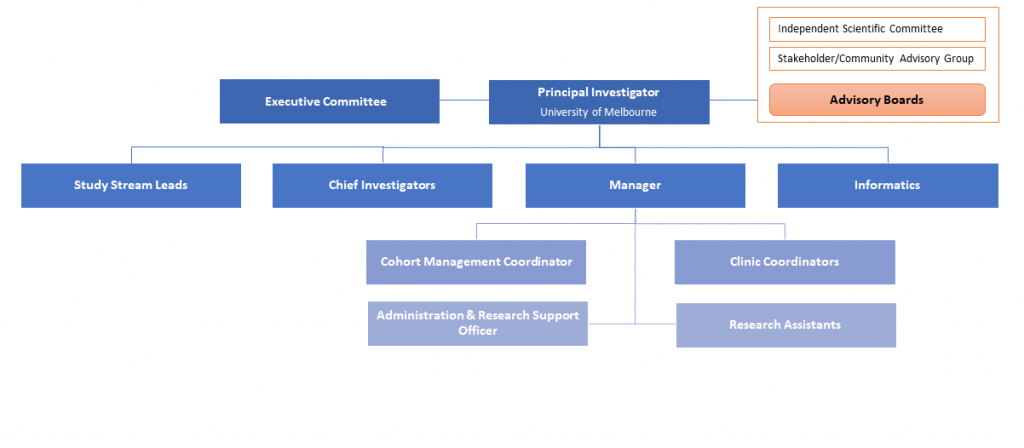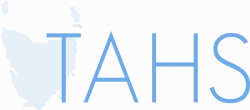Current Governance Structure

The TAHS is now administered through the University of Melbourne, led by Professor Shyamali Dharmage as the current principal investigator.
The governance structure has been developed to provide a sound, feasible and ethical approach to conducting the study. The study is directed by the Principal Investigator, Executive Committee, and the two Advisory Boards; the Independent Scientific Committee and the Stakeholder/Community Advisory Group.
The purpose of the Executive Commitee is to govern the TAHS operations and provide strategic direction. It comprises all Chief Investigators and Lead Site Investigators, the Project Manager, and may include input from external academic researchers or participant representatives. The committee meets quarterly, to facilitate decision-making on higher order conduct, including use of resources, overall research activities and collaborations and partnerships, to ensure the TAHS meets project goals.
The Scientific Commitee has been formed to provide feedback on research areas, study questions and data collection, to ensure the TAHS meets the highest scientific standards possible. The Commitee includes stakeholder representatives who are experts in relevant scientific fields, the TAHS Principal Investigator, and some Executive Commitee members. They meet twice annually.
The Stakeholder/Community Advosory Board was formed to facilitate the development of partnerships across consumers, community members and researchers. As such, the group comprises of participants, researchers, and representatives of consumer groups and scientific organisations. The group works to promote the TAHS, set research priorities, achieve research goals and develop strategies to disseminate study findings.
Additionally, a TAHS Working Group of project staff and Investigators meets fortnightly to provide input into the day-to-day project activities run by the TAHS administration, to ensure that all TAHS project tasks are completed within the specified timeframe and budget.
Task groups bring together subject matter experts to provide feedback and advice on specific research tasks. They may be created by the Working Group on an ad hoc basis when needs arise, or pre-determined, such as the Survey Development, Clinical Protocol Development and CT Task Groups.
Publication and data access policies: Our clear and transparent policies have enhanced team collaborations and resulted in high impact publications. Given our previous success, a publication policy has been developed. You can view the policy here.

